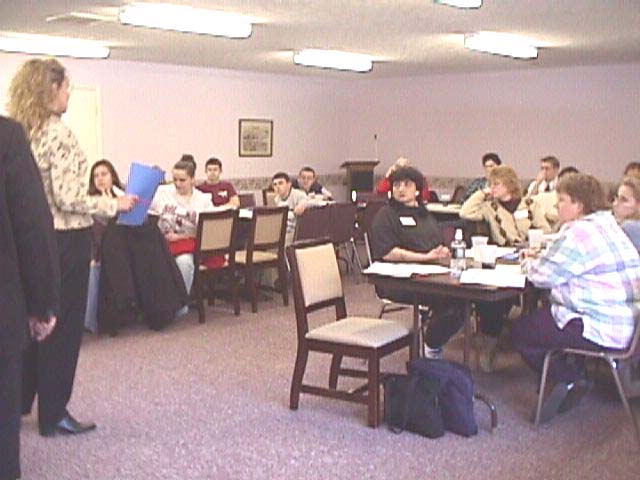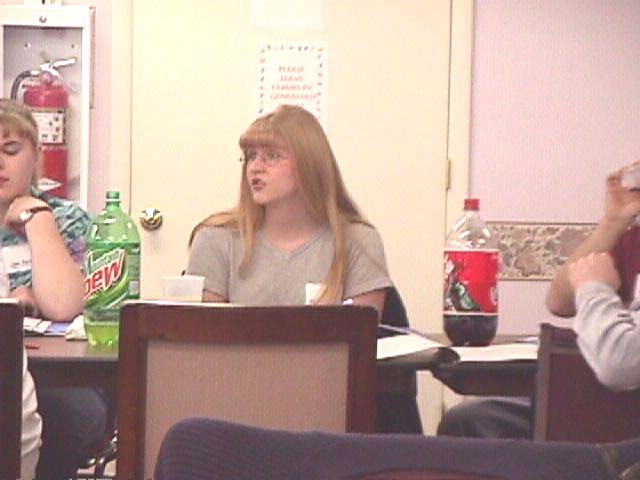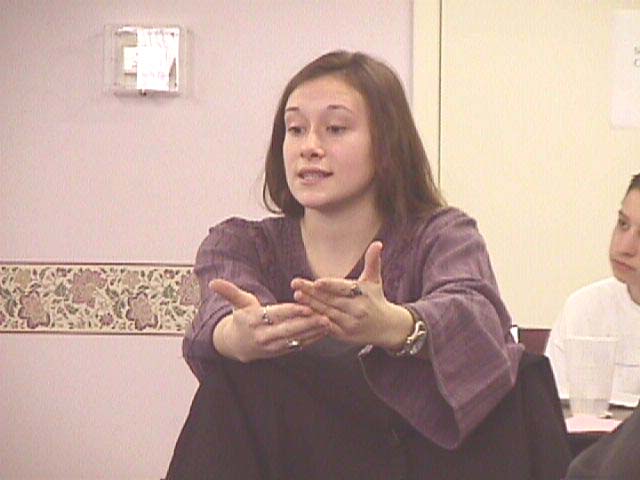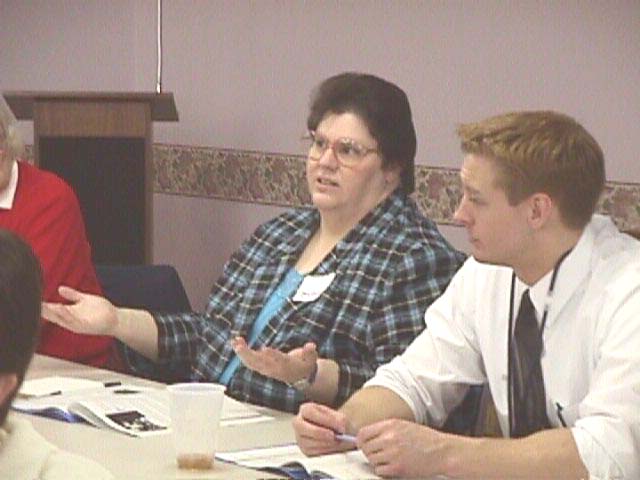| Charleston, WV--West Virginians feel strongly that adults who work
hard and play by the rules should have an adequate
standard of living for themselves and their families, according to a
report issued February 28 at Childrens Day at the
Legislature. Making Ends Meet: How Do We Support West Virginias
Working Families? reports on the outcomes of 30
nonpartisan community forums that took place across the state in the
last four months.
Forum participants felt it was unfair that many working families in
the state still do not earn livable wages with basic health
coverage. Similarly, participants felt it was fair to provide
incentives and rewards to employers who create good jobs, provide
benefits to their workers, and make a long-term commitment to the
state.
The community forums were motivated by broad concern about the status
of West Virginias working families, many of whom
were viewed as struggling to make ends meet despite an era of relative
national prosperity. Beginning in October over 600
people attended forums held in communities throughout the state.
Forum participants came from a wide range of income
levels, with over one-fourth from families with incomes of less than
$25,000 per year and nearly one-fourth with incomes over
$75,000.
As participants examined a broad range of approaches to addressing
economic, educational, and social aspects of the issue,
common themes emerged:
Most participants strongly favored expanding health coverage and
reducing the tax burden on low income workers as ways to
honor and reward work. There was wide agreement and understanding
that such steps would likely be incremental in an
economy with limited resources.
Participants viewed public transportation and child care as basic
needs of low-income working families. They were concerned
about the costly necessity of owning a car for transportation to work
and about the lack of qualified child care providers in
some parts of the state.
Many reported that their job decisions were increasingly motivated by
the availability of health insurance. Some talked about
the double stress of being uninsured and making wages too low to be
able to afford medical care if they needed it.
Many people felt that race and gender create significant inequalities
in education and employment opportunities. They were
concerned about training opportunities for women in higher-paying jobs
and about racial disparities, noting that unemployment
and child poverty rates are much higher among African Americans.
Some expressed deep concern that we dont place a high enough value
on education in West Virginia and that some children
are not encouraged enough--at home or at school--to see education as a
means to a better job and a better quality of life.
Nearly everyone agreed that West Virginians need more opportunities
for education and training beyond high school. While
they favored strong opportunities for students to pursue a college
education, they also stressed the need for more attention to
students who do not plan to attend college. They supported strong
vocational and technical programs, particularly in areas
where people were likely to find employment.
The Calhoun Family Resource Network and WVU Extension Service held a
Making Ends Meet issue forum February 21, at
the Calhoun Co. Library. The forums were sponsored by a consortium of
statewide organizations and local partners
throughout the state, including the Family Leadership Project of the
WV Family Resource Networks Association, West
Virginia Community Voices Partnership, West Virginia Center for Civic
Life, Coalition for West Virginias Children,
Governors Cabinet on Children and Families, WVU School of Applied
Social Sciences, West Virginia Council of Churches,
West Virginia Welfare Reform Coalition, , West Virginia Public Radio,
and American Friends Service Committee.

Forum participants

Mary Ellen Bell, high school student

Morgan Graham, high school student

Pastor Mary Zimmer
For more information, please call the West Virginia Community Voices
Partnership at 304-558-0530 or West Virginia Center
for Civic Life at 304-344-3430.
A full copy of the report is available by clicking here wvvoices
| 


